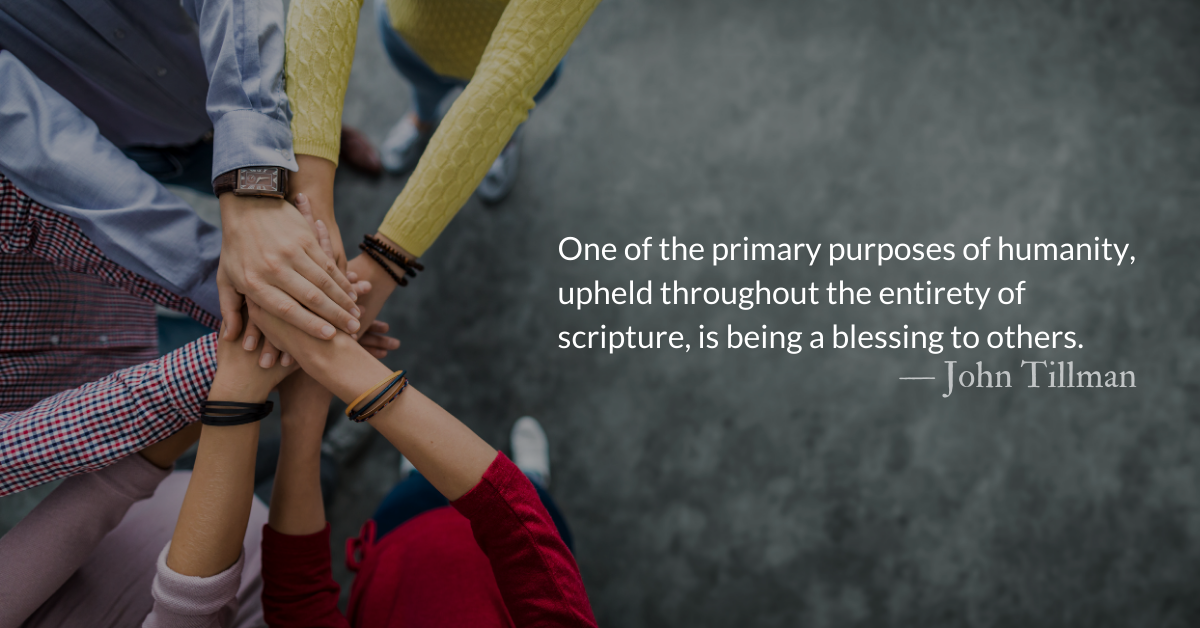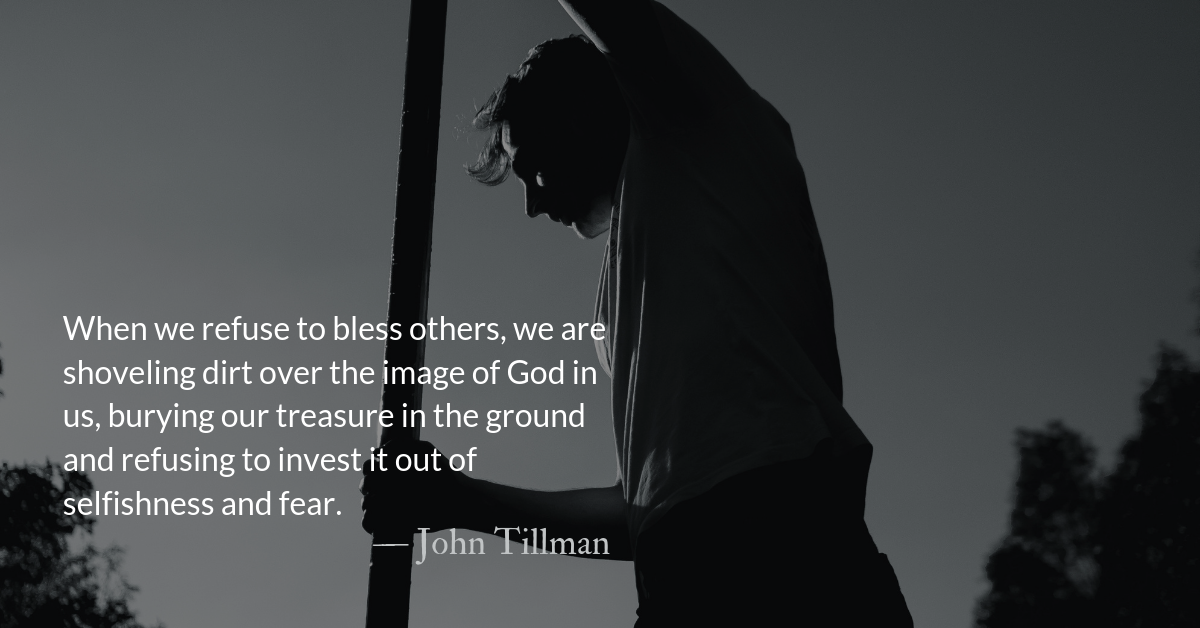Readers’ Choice Month:
In August, The Park Forum looks back on our readers’ selections of our most meaningful and helpful devotionals from the past 12 months. Thank you for your readership. This month is all about hearing from you. Submit a Readers’ Choice post today.
Today’s post was originally published, April 29,2021, based on readings from Numbers 6.
It was selected by reader, Jon Polk from Hong Kong
“Oh how our world needs to see Christians as agents of blessing! So many of our loudest voices are selfish, hurtful, and negative towards others. To be fair, I don’t believe all Christians act that way, in fact, I don’t believe that most Christians act that way, but many who get the most air time in public do act in less-than-kind ways. Our world desperately needs to hear a voice of compassion and blessing from us as followers of Christ. This passage relates to the Aaronic blessing, but when we look back at the covenant with Abraham, he is called to be a blessing to all people. So too, we must use our voices and actions to be a blessing not only to other Christians, but even to those who are not.”
Scripture Focus: Numbers 6.22-27
22 The Lord said to Moses, 23 “Tell Aaron and his sons, ‘This is how you are to bless the Israelites. Say to them:
24 “ ‘ “The Lord bless you
and keep you;
25 the Lord make his face shine on you
and be gracious to you;
26 the Lord turn his face toward you
and give you peace.” ’
27 “So they will put my name on the Israelites, and I will bless them.”
Reflection: Praying Priestly Blessings — Readers’ Choice
By John Tillman
Through the Aaronic blessing, God puts his name—his identity—on the Israelites. As followers of God today, a part of our identity is as carriers of the blessings of God that are intended for the world.
One of the primary purposes of humanity, upheld throughout the entirety of scripture, is being a blessing to others.
Adam and Eve’s charge was to cultivate and spread God’s blessings.
Abraham was called to bless all people through his offspring.
Through Moses, God began building a nation intended to share with the world the blessings of God’s wisdom and justice.
Sounding over and over within the societal laws of Israel is a drumbeat of blessing and caring for others, even foreigners, as members of one’s family.
The prophets, time and time again, spoke of spreading God’s blessings and the light of truth to the gentile nations.
Gabriel’s annunciation of Christ’s birth and Mary’s song about it later both put at center stage blessings for all of humanity.
Blessing others is a baked-in quality of the Imago Dei in all people. When we refuse to bless others, we are shoveling dirt over the image of God in us, burying our treasure in the ground and refusing to invest it out of selfishness and fear.
Only in Christ, however, can that Imago Dei be brought fully to life and empowered by the presence of the Holy Spirit. Then, blessing others may go beyond simple kindness as we take on our role as a royal priesthood.
Just as the family of Aaron were priests under Aaron, we are priests under Jesus, our high priest. We are charged, as the Aaronic priests were charged, to pronounce God’s blessing.
If we were to rewrite the Aaronic blessing for Christ’s order of priests, using images and teachings from Jesus, to put his identity on us, it might look something like this:
Like a mother tending to her children,
A shepherd tending sheep,
Or a gardener cultivating a garden,
May our Father bless and protect you.
May our Father’s eyes shine on you
Delighting in you as his child, showing you grace and love.
May our Father’s face be raised to you,
Welcoming you in his presence, bringing you peace.
Through this blessing, God puts his name, his identity, on those who will accept it. May we pronounce this priestly blessing not with words alone, but in how we live and walk through our world.
Music: “The UK Blessing” — Churches from all across the UK sing “The Blessing” over their country.
Divine Hours Prayer: The Refrain for the Morning Lessons
This is the Lord’s doing, and it is marvelous in our eyes. — Psalm 118.23
– From The Divine Hours: Prayers for Summertime by Phyllis Tickle.
Today’s Readings
1 Samuel 23 (Listen – 4:18)
1 Corinthians 4 (Listen – 3:15)
Read more about Becoming a Blessing
From Abram, you made a great nation
Through Abram, you promised to bless the nations
Make us, O Lord, a blessing in our nations
Read more about Identity Lost, Identity Gained
God, our father, is greater and more loving than Isaac…No one who comes to him will need cry, “Do you have only one blessing, my father?”








